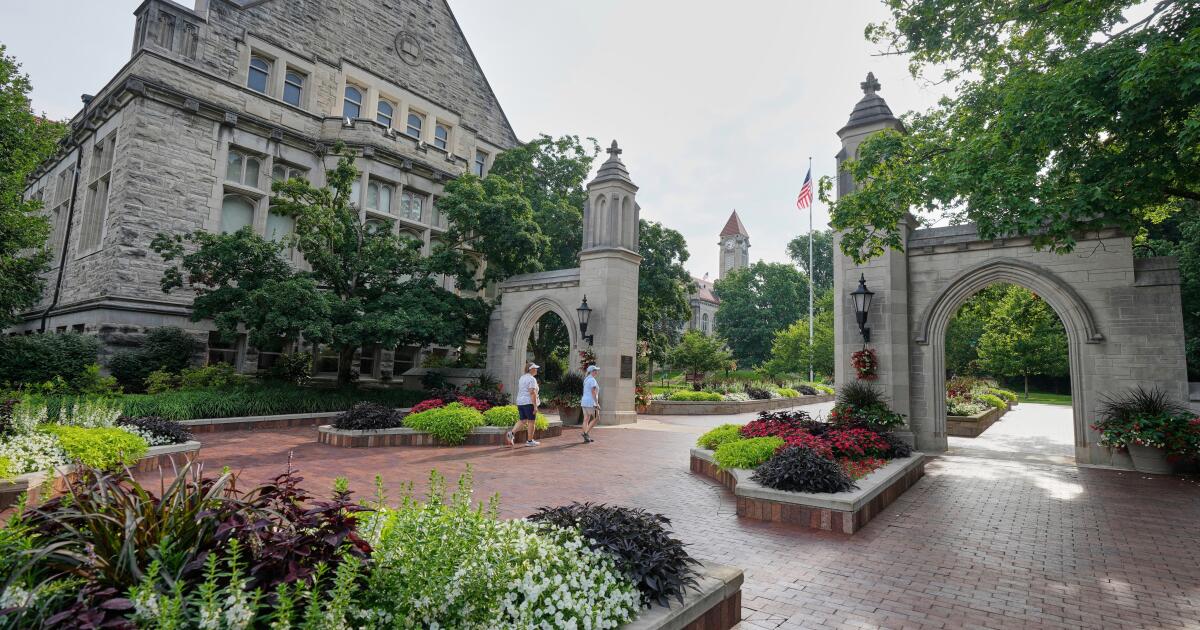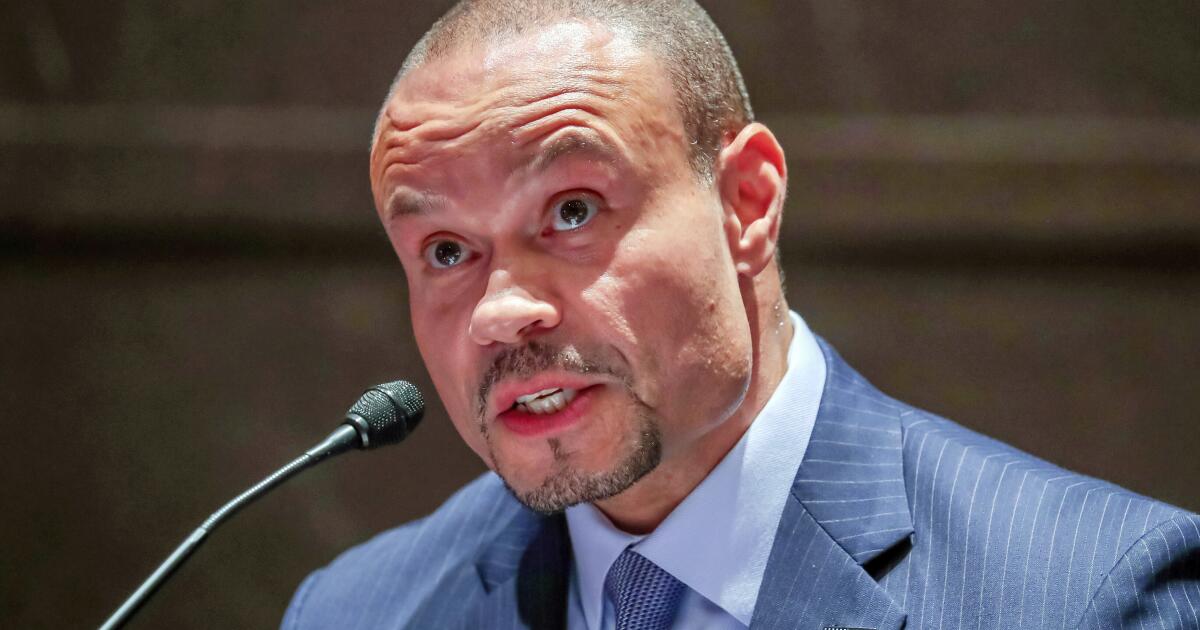Indiana University fires student newspaper advisor who refused to block news stories
Tension between Indiana University and its student newspaper flared last week with the elimination of the outlet’s print editions and the firing of a faculty advisor who refused an order to keep news stories out of a homecoming edition.
Administrators may have been hoping to minimize distractions during its homecoming weekend as the school prepared to celebrate a Hoosiers football team with its highest-ever national ranking. Instead, the controversy has entangled the school in questions about censorship and student journalists’ 1st Amendment rights.
Advocates for student media, Indiana Daily Student alumni and high-profile supporters including billionaire Mark Cuban have excoriated the university for stepping on the outlet’s independence.
The Daily Student is routinely honored among the best collegiate publications in the country. It receives about $250,000 annually in subsidies from the university’s Media School to help make up for dwindling ad revenue.
On Tuesday, the university fired the paper’s advisor, Jim Rodenbush, after he refused an order to force student editors to ensure that no news stories ran in the print edition tied to the homecoming celebrations.
“I had to make the decision that was going to allow me to live with myself,” Rodenbush said. “I don’t have any regrets whatsoever. In the current environment we’re in, somebody has to stand up.”
Student journalists still call the shots
A university spokesperson referred an Associated Press reporter to a statement issued Tuesday, which said the campus wants to shift resources from print media to digital platforms both for students’ educational experience and to address the paper’s financial problems.
Chancellor David Reingold issued a separate statement Wednesday saying the school is “firmly committed to the free expression and editorial independence of student media. The university has not and will not interfere with their editorial judgment.”
It was late last year when university officials announced they were scaling back the cash-strapped newspaper’s print edition from a weekly to seven special editions per semester, tied to campus events.
The paper published three print editions this fall, inserting special event sections, Rodenbush said. Last month, Media School officials started asking why the special editions still contained news, he said.
Rodenbush said IU Media School Dean David Tolchinsky told him this month that the expectation was print editions would contain no news. Tolchinsky argued that Rodenbush was essentially the paper’s publisher and could decide what to run, Rodenbush said. He told the dean that publishing decisions were the students’ alone, he said.
Tolchinsky fired him Tuesday, two days before the homecoming print edition was set to be published, and announced the end of all Indiana Daily Student print publications.
“Your lack of leadership and ability to work in alignment with the University’s direction for the Student Media Plan is unacceptable,” Tolchinsky wrote in Rodenbush’s termination letter.
The newspaper was allowed to continue publishing stories on its website.
Student journalists see a ‘scare tactic’
Andrew Miller, the Indiana Daily Student’s co-editor in chief, said in a statement that Rodenbush “did the right thing by refusing to censor our print edition” and called the termination a “deliberate scare tactic toward journalists and faculty.”
“IU has no legal right to dictate what we can and cannot print in our paper,” Miller said.
Mike Hiestand, senior legal counsel at the Student Press Law Center, said 1st Amendment case law going back 60 years shows student editors at public universities determine content. Advisors such as Rodenbush can’t interfere, Hiestand said.
“It’s open and shut, and it’s just so bizarre that this is coming out of Indiana University,” Hiestand said. “If this was coming out of a community college that doesn’t know any better, that would be one thing. But this is coming out of a place that absolutely should know better.”
Rodenbush said that he wasn’t aware of any single story the newspaper has published that may have provoked administrators. But he speculated the moves may be part of a “general progression” of administrators trying to protect the university from any negative publicity.
Blocked from publishing a print edition, the paper last week posted a number of sharp-edged stories online, including coverage of the opening of a new film critical of arrests of pro-Palestinian demonstrators last year, a tally of campus sexual assaults and an FBI raid on the home of a former professor suspected of stealing federal funds.
The paper also has covered allegations that IU President Pamela Whitten plagiarized parts of her dissertation, with the most recent story running in September.
Richmond writes for the Associated Press.

